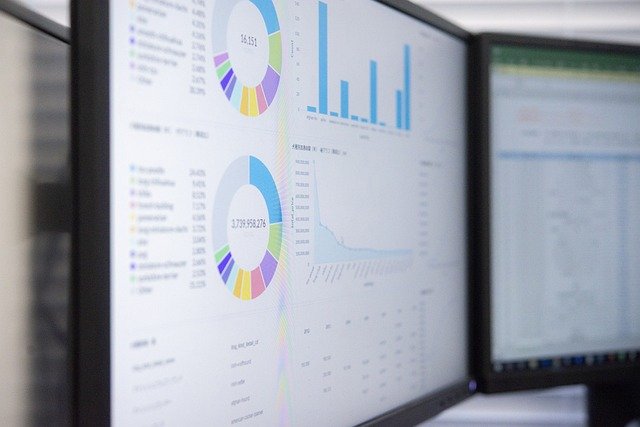The Role of Big Data in Driving Sustainability Initiatives in 2024
 Image by yatsusimnetcojp from Pixabay
Image by yatsusimnetcojp from Pixabay In an era marked by rapid technological advancement and increasing environmental concerns, the role of big data in driving sustainability initiatives has become more critical than ever. As we step into 2024, businesses, governments, and organizations are harnessing the power of big data to address pressing issues such as climate change, resource depletion, and social equity. Big data, with its ability to analyze vast amounts of information and derive actionable insights, is paving the way for innovative solutions that not only enhance operational efficiency but also contribute to a more sustainable future. This article explores the multifaceted role of big data in sustainability initiatives, delving into its applications, benefits, challenges, and future prospects.
1. Understanding Big Data and Its Relevance to Sustainability
Big data refers to the vast volumes of structured and unstructured data generated from various sources at an unprecedented velocity. This data can encompass anything from social media interactions to sensor readings in smart cities. The relevance of big data to sustainability lies in its ability to provide insights that can drive informed decision-making, optimize resource use, and promote environmentally friendly practices.
In the context of sustainability, big data can help organizations identify patterns and trends that may not be immediately apparent. For instance, by analyzing energy consumption data across different sectors, companies can pinpoint inefficiencies and develop strategies to reduce waste. Similarly, big data can be instrumental in tracking the supply chain, allowing businesses to ensure that their operations are environmentally responsible from start to finish.
Moreover, big data facilitates collaboration between various stakeholders, including governments, NGOs, and private enterprises. By sharing data and insights, these entities can work together to develop comprehensive sustainability initiatives that address local and global challenges. The interconnectedness of big data allows for a holistic approach to sustainability, where the collective knowledge can lead to more effective solutions.
As we look towards 2024, the role of big data in sustainability will continue to evolve. With advancements in artificial intelligence and machine learning, the potential for big data to drive innovative sustainability initiatives is immense. Organizations that embrace these technologies will be better positioned to meet the growing demands for sustainable practices and contribute to a healthier planet.
2. Applications of Big Data in Environmental Monitoring
One of the most significant applications of big data in sustainability is environmental monitoring. By leveraging data from various sources, including satellite imagery, IoT sensors, and social media, organizations can gain real-time insights into environmental conditions. This information is crucial for tracking changes in ecosystems, assessing the impact of human activities, and developing strategies for conservation.
For example, satellite data can be used to monitor deforestation rates, track wildlife populations, and assess the health of oceans and waterways. By analyzing this data, researchers can identify areas that require immediate attention and implement targeted conservation efforts. Additionally, big data can help in predicting environmental disasters, such as floods or wildfires, by analyzing historical data patterns and current conditions.
Furthermore, big data enables organizations to engage with the public in meaningful ways. By sharing environmental data through interactive platforms, communities can become more aware of local issues and participate in sustainability initiatives. This transparency fosters a sense of accountability and encourages collective action towards environmental stewardship.
As we move into 2024, the integration of big data with advanced technologies like machine learning and predictive analytics will enhance the accuracy and effectiveness of environmental monitoring. Organizations that harness these tools will be better equipped to address environmental challenges and promote sustainable practices on a larger scale.
3. Big Data in Resource Management and Efficiency
Resource management is another critical area where big data plays a pivotal role in driving sustainability initiatives. By analyzing data related to resource consumption, organizations can identify inefficiencies and implement strategies to optimize their operations. This not only reduces waste but also lowers costs, making it a win-win situation for businesses and the environment.
For instance, in the energy sector, big data analytics can help utilities forecast demand, optimize energy production, and reduce carbon emissions. By analyzing patterns in energy consumption, utilities can better match supply with demand, minimizing the need for excess generation from fossil fuels. Additionally, smart meters and IoT devices provide real-time data that can empower consumers to make informed decisions about their energy use.
In the realm of water management, big data can be used to monitor water quality, track usage patterns, and identify leaks in distribution systems. By analyzing this data, municipalities can implement conservation measures and ensure that water resources are used efficiently. This is particularly important in regions facing water scarcity, where every drop counts.
As we approach 2024, the integration of big data with emerging technologies such as blockchain and AI will further enhance resource management efforts. These innovations will enable organizations to create more sustainable supply chains, reduce waste, and promote circular economy practices that prioritize resource efficiency and environmental protection.
4. Enhancing Sustainable Urban Development with Big Data
Urbanization presents significant challenges for sustainability, as cities grapple with issues such as pollution, waste management, and transportation. Big data offers powerful tools to address these challenges and promote sustainable urban development. By analyzing data from various sources, cities can make informed decisions that enhance livability while minimizing environmental impact.
For example, smart city initiatives leverage big data to optimize transportation systems. By analyzing traffic patterns, public transit usage, and pedestrian movements, cities can develop efficient transportation networks that reduce congestion and emissions. Additionally, big data can inform urban planning decisions, ensuring that new developments are designed with sustainability in mind.
Moreover, big data can play a crucial role in waste management. By monitoring waste generation patterns and recycling rates, municipalities can implement targeted programs to reduce landfill waste and promote recycling. This data-driven approach not only improves waste management but also fosters community engagement in sustainability efforts.
As we look toward 2024, the continued integration of big data into urban planning and development will be essential for creating sustainable cities. By leveraging data to inform decision-making, cities can enhance their resilience to environmental challenges and create healthier, more sustainable living environments for their residents.
5. The Role of Big Data in Corporate Sustainability Reporting
Transparency and accountability are vital components of corporate sustainability initiatives. Big data plays a significant role in enhancing sustainability reporting by providing organizations with the tools to collect, analyze, and communicate their environmental performance effectively. This data-driven approach allows companies to demonstrate their commitment to sustainability and engage stakeholders in meaningful ways.
Through big data analytics, organizations can track key performance indicators (KPIs) related to sustainability, such as carbon emissions, energy consumption, and waste generation. By analyzing this data, companies can identify areas for improvement and set measurable goals to enhance their sustainability efforts. Furthermore, big data enables organizations to benchmark their performance against industry standards and best practices, fostering a culture of continuous improvement.
In addition to internal reporting, big data can enhance external communication with stakeholders. By sharing data-driven insights through sustainability reports and other communication channels, organizations can build trust and credibility with customers, investors, and the public. This transparency not only enhances brand reputation but also encourages responsible consumer behavior.
As we move into 2024, the demand for corporate sustainability reporting will continue to grow. Organizations that leverage big data to enhance their reporting practices will be better positioned to meet stakeholder expectations and demonstrate their commitment to sustainability.
6. Challenges and Future Prospects of Big Data in Sustainability
While the potential of big data in driving sustainability initiatives is immense, several challenges must be addressed to fully realize its benefits. Data privacy and security concerns are paramount, as organizations must navigate regulations and ethical considerations when collecting and analyzing data. Ensuring that data is used responsibly and transparently is essential for building trust with stakeholders.
Additionally, the sheer volume of data generated can be overwhelming, making it challenging for organizations to extract meaningful insights. Developing the necessary infrastructure and analytical capabilities to manage and interpret big data is crucial for organizations seeking to leverage its potential for sustainability. This may require investment in technology, talent, and training to build a data-driven culture.
Despite these challenges, the future prospects for big data in sustainability are promising. As technology continues to evolve, organizations will have access to more sophisticated tools for data analysis and visualization. The integration of artificial intelligence and machine learning will further enhance the ability to derive actionable insights from big data, enabling organizations to develop innovative solutions to sustainability challenges.
In conclusion, the role of big data in driving sustainability initiatives in 2024 is multifaceted and transformative. By harnessing the power of big data, organizations can optimize resource management, enhance environmental monitoring, and promote sustainable urban development. While challenges remain, the potential for big data to contribute to a more sustainable future is immense, and organizations that embrace this technology will be at the forefront of driving positive change.
Conclusion
As we navigate the complexities of sustainability in 2024, the role of big data will continue to expand and evolve. Organizations that leverage big data effectively will not only enhance their operational efficiency but also contribute to a more sustainable world. By fostering collaboration, transparency, and innovation, big data can drive meaningful change across industries and communities, paving the way for a brighter, more sustainable future.
FAQ
1. What is big data?
Big data refers to the large volumes of structured and unstructured data generated from various sources at high velocity. It encompasses data from social media, sensors, transactions, and more, which can be analyzed to derive insights and inform decision-making.
2. How does big data contribute to sustainability?
Big data contributes to sustainability by providing insights that help organizations optimize resource use, monitor environmental conditions, and enhance transparency in sustainability reporting. It enables informed decision-making and fosters collaboration among stakeholders.
3. What are some challenges associated with using big data for sustainability?
Challenges include data privacy and security concerns, the overwhelming volume of data, and the need for infrastructure and analytical capabilities to manage and interpret data effectively. Organizations must navigate these challenges to leverage big data for sustainability.
4. What is the future of big data in sustainability initiatives?
The future of big data in sustainability initiatives is promising, with advancements in technology such as AI and machine learning enhancing data analysis capabilities. Organizations that embrace these technologies will be better positioned to address sustainability challenges and drive positive change.



No Comments